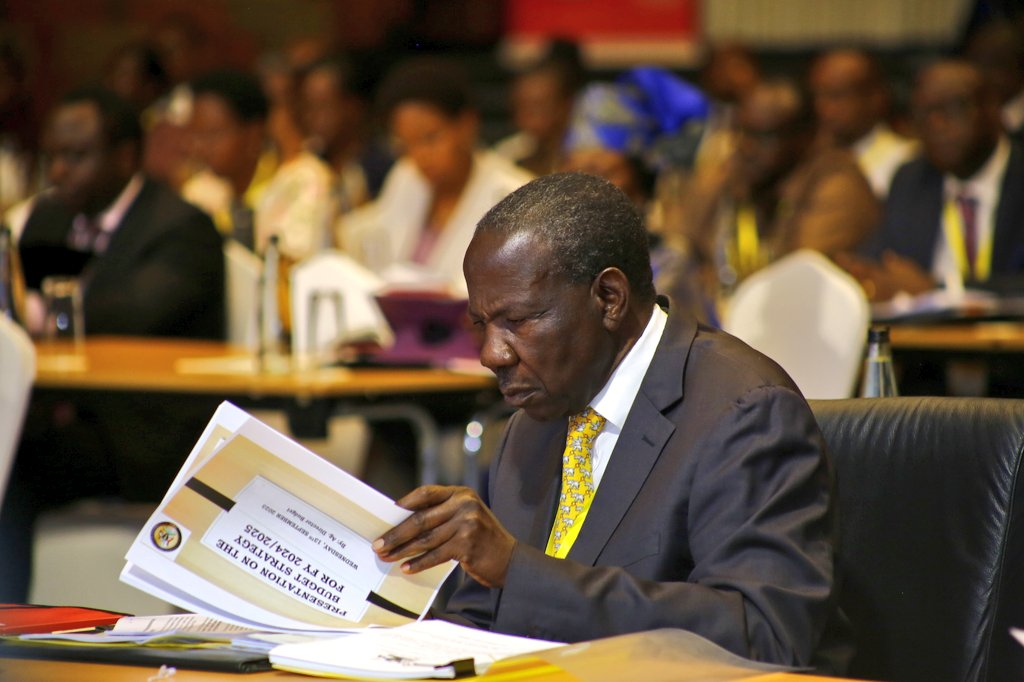The Ministry of Finance, Planning and Economic Development has unveiled the Budget Strategy for FY 2024/25, indicating that the resource envelope will be Shs52.722 trillion.
Finance Minister Matia Kasaija, while unveiling the strategy at Kampala Serena Hotel on Thursday, 14 September 2023, said the preliminary domestic revenue is projected to slightly increase to Shs29.957.9 trillion in FY 2024/25 from Shs29.672.3 trillion.
Due to debt servicing costs, he said, the resources available for allocation have reduced to Shs21.734.2 trillion for FY 2024/25 from Shs25.205.2 trillion this FY.
He also warned that the government will cut back wasteful spending in the event of the World Bank’s suspension of loans to Uganda.
“As we start the budgeting process for FY 2024/2025, we should be cognisant of the resource limitations, including domestic revenue and limited space for borrowing. Therefore, the ministry will be unable to accommodate all MDA priorities,” the minister said.
Next year’s budget theme will be: ‘Full monetisation of Uganda’s economy through commercial agriculture, industrialisation, expanding and broadening services, digital transformation and market access.’
Slightly over Shs6.7 trillion in project and other development financing has been snuffed out by the freeze.
But the minister also remained confident of future prospects despite prevailing difficulties
“The implementation of strategic interventions such as the Parish Development Model, development of the minerals sector, agro-industrialisation and manufacturing, among others, will spur economic growth to 6 percent by end of FY2023/24, and to 6.5% in FY 2024/2025,” he said.
Mr Kasaija said they project an average economic growth rate of at least 7 percent over the medium term. The minister said this will largely be driven by growth in industry, services and agriculture sectors.
According to the budget working document, the government promises to continue maintaining macroeconomic stability (keeping inflation low and debt sustainability) through implementation of fiscal consolidation interventions. Boosting household incomes and microenterprises through the Parish Development Model and commercialising agriculture to enhance production and improve competitiveness is also repeated in the plans for next year.
Prime Minister Robinah Nabbanja, who closed the conference on behalf of President Kaguta Museveni said faster socio-economic transformation will be achieved by doing business differently, with accountability, fighting corruption, coordination and effectiveness. The President said the budget must be repurposed to high impact growth areas.
“Our major task now is adherence to effective implementation of Uganda’s fiscal consolidation agenda, which includes the following: effective implementation of domestic revenue mobilisation strategy; effectiveness and efficiency of public expenditure management; and controlling non-concessional borrowing through effective implementation of the Medium -Term Debt Reduction Strategy,” she said.





